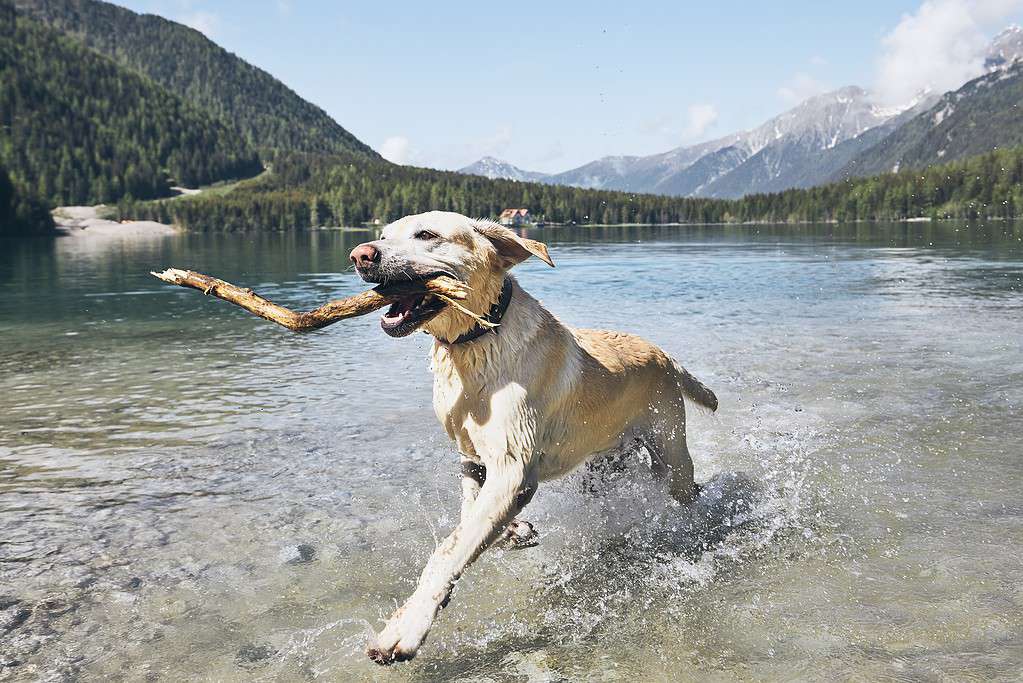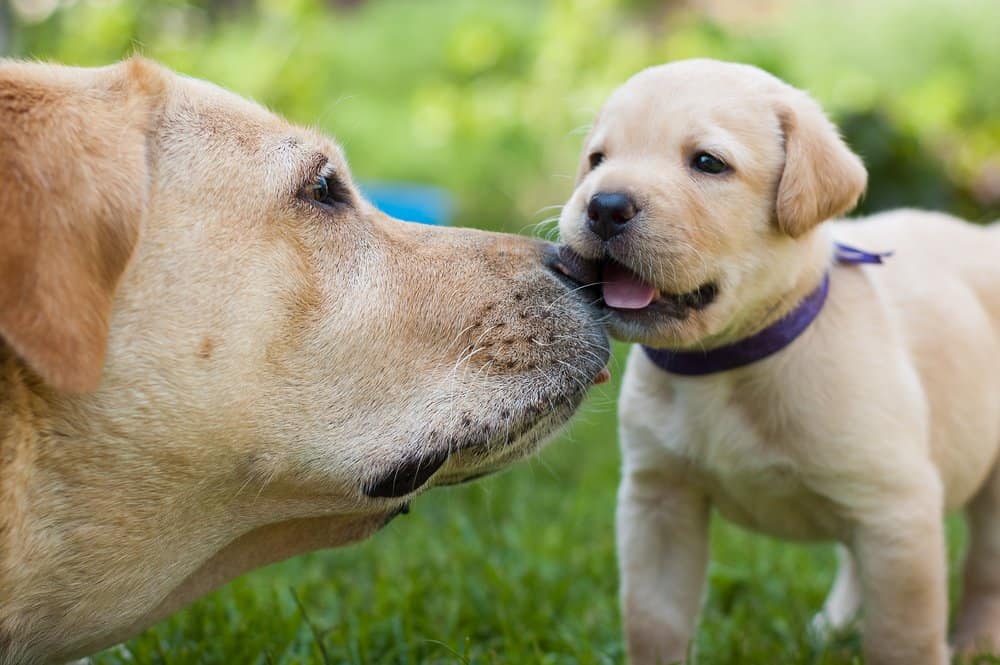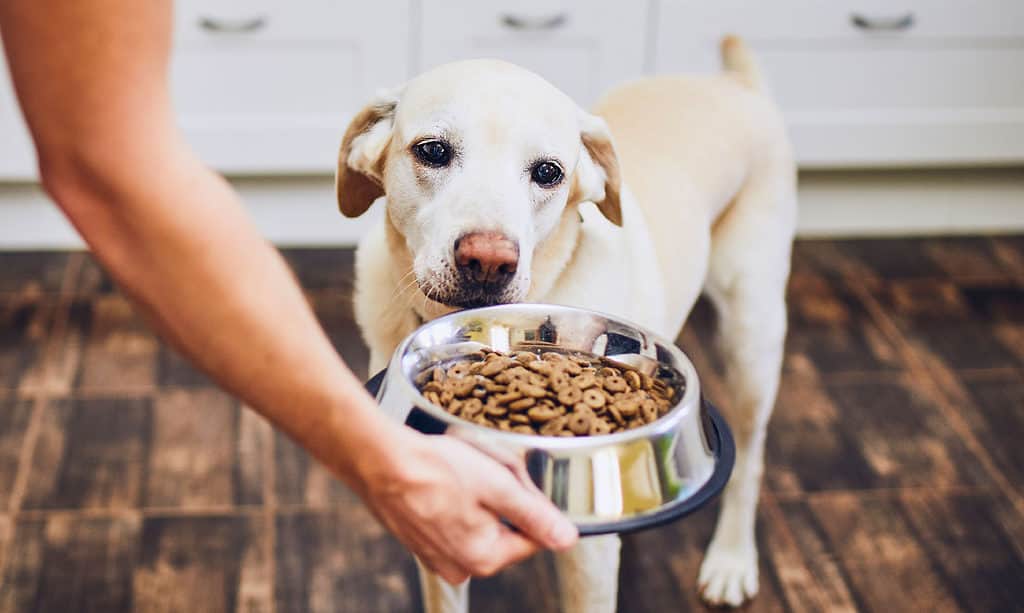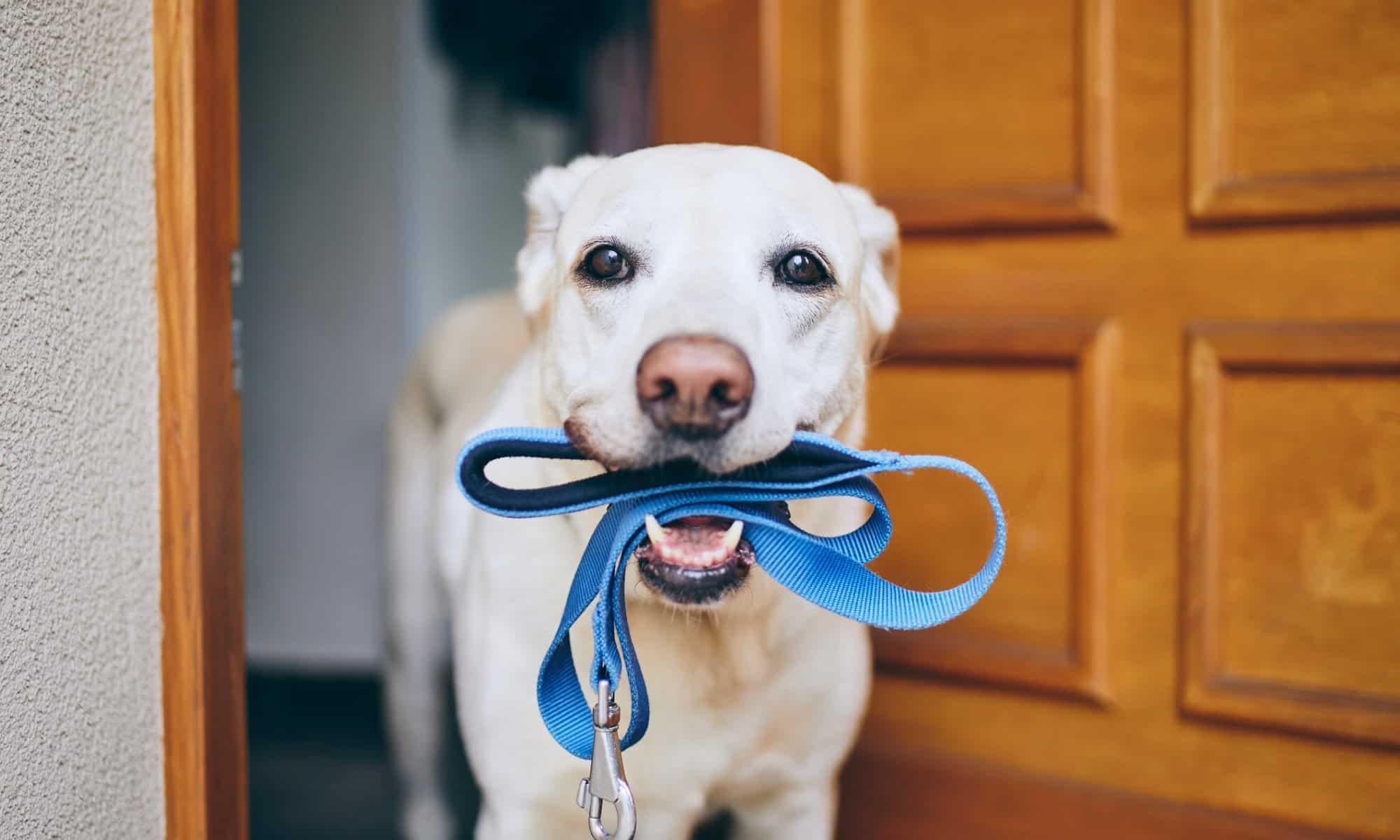Labrador retrievers are one of the world’s most popular dog breeds, and it is easy to see why. They are a ray of sunshine in the dog world with their energetic, loyal, and playful temperaments.
If you are ready to welcome a Labrador retriever into your home, you must understand the training process for these dogs. Although they are a naturally friendly and adaptable breed, Labrador retrievers still require appropriate training from a young age.
Getting Started with Training Your Labrador Retriever

Labrador retrievers are eager to be trained.
©Chalabala/iStock via Getty Images
The Adjustment Period
When you first bring your Labrador retriever home, they will need some time to adjust. You generally want to avoid overwhelming your new companion by jumping straight into serious training. It’s a good idea to let them explore their new home and adjust to all the new smells and sounds first. It can take some dogs days to months to adjust to their new home. So, allowing them to settle in for a day or two before starting training could be beneficial.
Avoid These Mistakes
You generally want to avoid these mistakes when training a Labrador retriever:
- Making training sessions long and boring: Most puppies are eager to play and explore, so they aren’t going to be interested in a drawn-out training session. Keep training short but productive to maintain their focus.
- Not practicing consistency: Training sessions should be consistent so that both you and your dog can maintain a smooth schedule to make training more effective.
- Staying in one environment: Your Labrador retriever should be trained in various environments as part of the socialization and desensitization process. This allows them to apply their training in different situations and environments.
- Not using positive reinforcement: Most experts recommend positive reinforcement training techniques for Labrador retrievers and many other dog breeds. Good behavior should be reinforced, and corrections should not be done through harsh punishments.
- Overdoing rewards or treats: Avoid overdoing the treats during training so that they maintain their value. If your labrador retriever doesn’t find the treat as rewarding anymore, they won’t be as motivated to work for it.
What To Expect When Training Labrador Retrievers

All Labrador retriever puppies should be socialized from a young age.
©Anesssa/Shutterstock.com
Labrador Retriever Training Timeline: 8 to 12 Weeks
Early Socialization
Early socialization is important for Labrador retrievers and could begin as early as three weeks old. Their earliest forms of socialization will be from their mother and siblings before they are in your care.
The socialization period is important as it allows the labrador retriever puppies to become desensitized to different life experiences and animals. The experiences a Labrador retriever puppy gets from early socialization could have a major influence on their personalities as adults. Therefore, they must be socialized from a young age and have the opportunities to adjust to different sounds, animals, smells, and other environmental stimuli.
According to the American Veterinary Society of Animal Behavior, the first three months are an important time for puppy socialization. They should be exposed to different animals and environments as possible during those months. However, you do not want to rush the process and make them feel overstimulated.
Cues
You can begin teaching basic cues to your Labrador retriever puppy from as early as eight weeks old. These cues will be helpful during the training process and have advantages for both you and your dog. Cues will come in handy during recall and when signaling your dog to show behaviors appropriate to the situation. Recommended cues you can teach labrador retrievers include sit, stay, yield, yes, and no.
Potty Training
It is expected that Labrador retriever puppies won’t know the appropriate places to potty unless it is part of their training. You can begin potty training or housebreaking them at eight weeks old, but ideally before 12 weeks old. By training them to use a designated potty area, you are helping to prevent accidents around the home or in other inappropriate areas.
Crate Training
It is recommended to start crate training Labrador retriever puppies between eight and 10 weeks old. Keep in mind that crates are not an option for every dog. Starting the crate training while they are young gives them plenty of time to get used to one.
According to The Humane Society of the United States, the crate should not be used for punishment and instead associated with something pleasant. Crate training should be done in small steps for young Labrador retrievers. Furthermore, they should not be left in the crate for longer than three to four hours at a time if they are under six months old.
Labrador Retriever Training Timeline: 3 to 6 months
Establish a Grooming Routine
It’s important to establish a grooming routine with your Labrador retriever and allow them to adjust to being groomed. This ensures they won’t be fearful of grooming to make the process easier and less stressful for all involved. Labrador retrievers have short coats that do not usually need to be trimmed or shaved. However, they still need their nails trimmed, brushes, dental cleaning, baths, and ear cleaning.
Leash, Harness, and Collar Training
Although leash, harness, and collar training can begin when Labrador retrievers are 10 weeks old, it should be focused on by the time they are three months old. This type of training is important if you plan to take them on walks or trips that require you to control them.
You ideally want to allow them to adjust to wearing harnesses, collars, and leashes until they become fully comfortable in it. You could start by letting your Labrador Retriever puppy wear the harness or lead for a few hours each day while they are playing or exploring.
Obedience Training Classes
Three months old is a great age to enroll your Labrador retriever puppy into obedience training classes. It is best to wait until after they have had their necessary shots to protect them and other puppies in the class.
Some training classes have different requirements on the necessary shots and the age a puppy should be before they attend. Certain trainers might prefer to work one-on-one with your puppy before they are ready to join the group.
You should speak with a veterinarian about the right age and vaccinations recommended for your Labrador retriever puppy before enrolling them in obedience training classes.
Introduce Light Exercise

You can take your Labrador retriever on short walks when the weather is favorable.
©Ljupco Smokovski/Shutterstock.com
At this age, labrador retrievers are in their essential growth and development stage. The harsh impact on their joints and overexertion from intense exercise will not be good for them, so exercise should be light.
Exercise is important for Labrador retrievers and offers both mental and physical benefits. Three to six months is a great age to start introducing them to light exercise and appropriate areas to release pent-up energy.
You don’t want to take your Labrador retriever puppy for a long jog, but rather a short walk or a game of fetch.
Labrador Retriever Training Timeline: 7 to 12+ Months

You can change your Labrador retrievers’ diet once they reach adulthood and have new requirements.
©iStock.com/Chalabala
Food Transitions
Once your Labrador retriever is between 12 and 18 months old, you can start transitioning their food to an adult formula. Labrador retrievers generally reach adulthood than smaller dog breeds, so they may need to be on a puppy formula for longer. The exact age you should start transitioning your Labrador retriever’s food to a more age-appropriate formula should be discussed with a veterinarian.
Exercise Changes
Once your Labrador retriever is fully grown, you can start introducing them to more vigorous exercise. They will be able to jog with you and take longer walks. Labrador retrievers are active dogs that should receive at least one to two hours of exercise per day. The exercise sessions can be spread out throughout the day to avoid overexercising them.
You could stick an hour of exercise each morning and evening. This will depend on what your Labrador retriever can handle. Training is included as a form of exercise for Labrador retrievers as it provides them with mental and physical stimulation.
Conclusion
Labrador retrievers are eager to be trained thanks to their loyal temperaments. They love interacting with their owners, which is what most types of training involve. Eight to 12 weeks is the perfect age for most Labrador retriever puppies to begin training.
Training a Labrador retriever requires plenty of time and patience, and some progress faster during training than others. It is important to work at a pace your Labrador retriever is comfortable with.
Ready to discover the top 10 cutest dog breeds in the entire world?
How about the fastest dogs, the largest dogs and those that are -- quite frankly -- just the kindest dogs on the planet? Each day, AZ Animals sends out lists just like this to our thousands of email subscribers. And the best part? It's FREE. Join today by entering your email below.
Thank you for reading! Have some feedback for us? Contact the AZ Animals editorial team.








